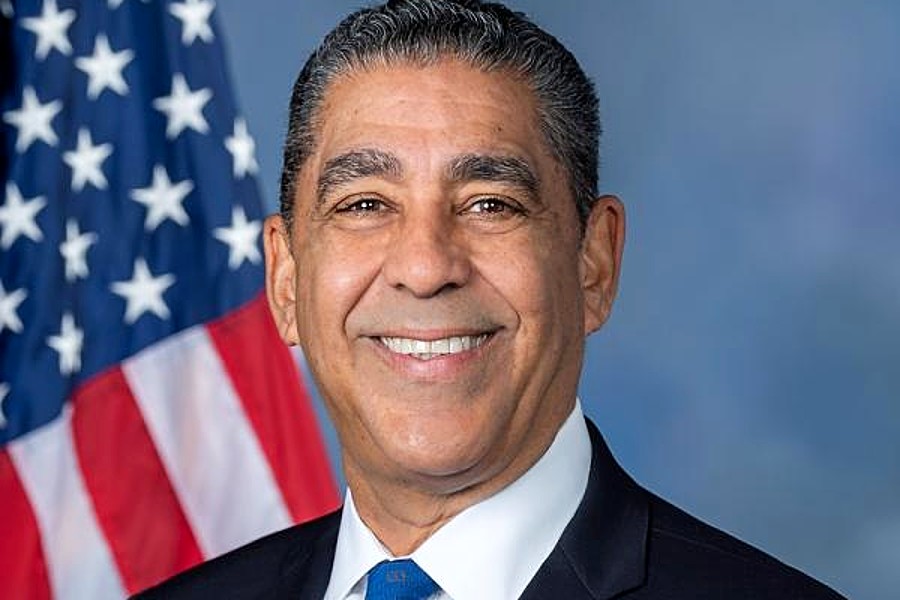
Mayor de Blasio and the NYC Department of Citywide Administrative Services (DCAS) today announced that the Department has begun installation of surrounding safety cameras from Harlem to Hollis.
The cameras are on 1,500 fleet trucks to eliminate blind spots and visual impairments for truck operators. These cameras will provide operators an additional tool to see directly in front, behind, and to the blindsides of trucks.
The cameras are on 1,500 fleet trucks to eliminate blind spots and visual impairments for truck operators. These cameras will provide operators an additional tool to see directly in front, behind, and to the blindsides of trucks.
Conventionally designed trucks obstruct the driver’s view of the road in front of the engine, causing a safety hazard for pedestrians, bicyclists, and children.
These retrofits are part of the DCAS Safe Fleet Transition Plan (SFTP) for City fleet units. Through the SFTP, DCAS is specifying the highest level of safety available on new cars and trucks and implementing safety retrofits.
DCAS has already installed over 60,000 safety improvements to City fleet units, including driver alert systems, telematics, truck side-guards, automatic braking, back-up alerts, dash cams, and heated mirrors.
“Safe streets save lives,” said Mayor Bill de Blasio. “Adding cameras to our fleet is a commonsense way to create a safer city for everyone.”
“Outfitting the City’s fleet with cameras is a smart and proven way to reduce collisions and increase safety for pedestrians, cyclists, and drivers alike,” said Deputy Mayor for Operations Laura Anglin. “I’m proud of the work City agencies have done to bring Vision Zero to life and look forward to making further progress in 2021.”
“Vision Zero remains a priority for the City Fleet,” said DCAS Deputy Commissioner and NYC Chief Fleet Officer Keith Kerman. “Operating work trucks is difficult but essential work. These new cameras and backup alerts will offer drivers a full view of the obstructed areas around a truck, helping to keep pedestrians, bicyclists, and drivers safe.”
“Vision Zero has always demanded we address street safety issues on multiple fronts,” said DOT Commissioner Hank Gutman. “Our partners at DCAS are showing us that we not only need to train the safest drivers, but we also need to ensure they are driving the safest fleet vehicles. Because being able to see the child or senior behind or over the hood of a City vehicle can very often be the difference between life or death, the new surround cameras added under this plan will undoubtedly save lives.”
DCAS previously announced that it is pursuing high vision truck models for future truck replacements. High vision trucks will eliminate frontal visual obstructions. The 1,500 surround cameras will be retrofitted onto existing conventional trucks to improve safety until replacements are in place. DCAS has installed over 500 units at 13 agencies so far and will complete the rollout by December 2021. The NYC Department of Sanitation is also testing similar technology for its fleet of garbage trucks.
The surround cameras will go on a wide variety of vehicle types including NYC Department of Correction buses, NYC Parks Department garbage and forestry trucks, New York City Housing Authority box trucks, New York City Police Department rack trucks, NYC Department of Environmental Protection catch basin trucks, DCAS supply vans, and NYC Department of Transportation dump trucks.
The surround camera system provides the driver a full view of all sides of the vehicle and includes back-up sensors and sound alerts when a truck is going in reverse.
These types of systems have been proven in studies by the Insurance Institute for Highway Safety (IIHS) and others to increase safety.
DCAS Fleet Management has implemented a wide variety of safety measures as part of Vision Zero. In addition to the Safe Fleet Transition Plan, additional measures include the City’s fleet first CRASH management system, the nation’s largest rollout of live vehicle tracking devices managed through our Fleet Office of Real-Time Tracking (FORT), the nation’s leading program of truck safety guards, barring hands-free phone use by fleet operators, and training over 70,000 staff in safety.
The announcement was made at the Global Vision Zero Safety Forum, being hosted by DCAS and Together for Safer Roads (TSR).
DCAS and TSR are working together to promote these types of fleet safety investments among commercial, non-profit, and other public fleets as part of the DCAS Fleets of the Future initiative.
“I thank Mayor de Blasio and the DCAS for this great initiative that will make our trucks safer than ever. Trucks have a greater number of blind spots which can make them much more dangerous than your average vehicle. These 1,500 cameras will add an additional layer of safety to ensure we’re keeping all pedestrians and cyclists safe,”
“I thank Mayor de Blasio and the DCAS for this great initiative that will make our trucks safer than ever. Trucks have a greater number of blind spots which can make them much more dangerous than your average vehicle. These 1,500 cameras will add an additional layer of safety to ensure we’re keeping all pedestrians and cyclists safe,” said Council Member Ydanis Rodriguez, Chairman of the Transportation Committee. “I look forward to continuing to work alongside Mayor de Blasio, Speaker Johnson, and the DCAS to ensure we continue increasing the safety of our streets.”
“New York City has always been thoughtful about deploying safety solutions across their fleet. The Safe Fleet Transition Plan is a model for making commitments at scale to improving vehicle design, addressing driver visibility challenges and committing to vulnerable road user safety. We applaud NYC Fleet for deploying surround-view camera systems as a means to address these important safety issues. Drivers can’t anticipate or react to what they can’t see, and this decision will help both drivers and community members return home safely,” said David Braunstein, President, Together for Safer Roads.
Become a Harlem Insider!
By submitting this form, you are consenting to receive marketing emails from: . You can revoke your consent to receive emails at any time by using the SafeUnsubscribe® link, found at the bottom of every email. Emails are serviced by Constant Contact








